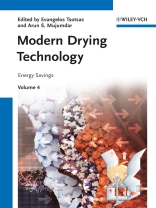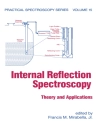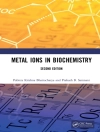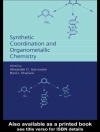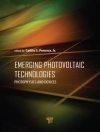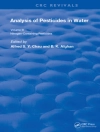This five-volume series provides a comprehensive overview of all important aspects of modern drying technology, concentrating on the transfer of cutting-edge research results to industrial use.
Volume 4 deals with the reduction of energy demand in various drying processes and areas, highlighting the following topics: Energy analysis of dryers, efficient solid-liquid separation techniques, osmotic dehydration, heat pump assisted drying, zeolite usage, solar drying, drying and heat treatment for solid wood and other biomass sources, and sludge thermal processing.
สารบัญ
FUNDAMENTALS OF ENERGY ANALYSIS OF DRYERS
Introduction
Energy in Industrial Drying
Fundamentals of Dryer Energy Usage
Setting Targets for Energy Reduction
Classification of Energy Reduction Methods
Case Study
Conclusions
MECHANICAL SOLID-LIQUID SEPARATION PROCESSES AND TECHNIQUES
Introduction and Overview
Density Separation Processes
Filtration
Enhancement of Separation Processes by Additional Electric or Magnetic Forces
Mechanical/Thermal Hybrid Processes
Important Aspects of Efficient Solid-Liquid Separation Processes
Conclusions
ENERGY CONSIDERATIONS IS OSMOTIC DEHYDRATION
Scope
Introduction
Mass Transfer Kinetics
Modeling of Osmotic Dehydration
Osmotic Dehydration – Two Major Issues
Conclusions
HEAT PUMP ASSISTED DRYING TECHNOLOGY – OVERVIEW WITH FOCUS ON ENERGY, ENVIRONMENT AND PRODUCT QUALITY
Introduction
Heat Pump Drying System – Fundamentals
Various Configurations/Layout of a HPD
Heat Pumps – Diverse Options and Advances
Miscellaneous Heat Pump Drying Systems
Applications of Heat Pump Drying
Sizing of Heat Pump Dryer Components
Future Research and Development Needs in Heat Pump Drying
ZEOLITES FOR REDUCING DRYING ENERGY USAGE
Introduction
Zeolite as an Adsorption Material
Using Zeolites in Drying Systems
Energy Efficiency and Heat Recovery
Realization of Adsorption Dryer Systems
Cases
Economic Considerations
Perspectives
SOLAR DRYING
Introduction
Solar Radiation
Solar Air Heaters
Design and Function of Solar Dryers
Solar Drying Kinetics
Control Strategies for Solar Dryers
Economic Feasibility of Solar Drying
Conclusions and Outlook
ENERGY ISSUES OF DRYING AND HEAT TREATMENT FOR SOLID WOOD AND OTHER BIOMASS SOURCES
Introduction
Wood and Biomass as a Source of Renewable Material and Energy
Energy Consumption and Energy Savings in the Drying of Solid Wood
Preconditioning of Biomass as a Source of Energy: Drying and Heat Treatment
Conclusions
EFFICIENT SLUDGE THERMAL PROCESSING: FROM DRYING TO THERMAL VALORIZATION
Introduction to the Sludge Context
Sludge Drying Technologies
Energy Efficiency of Sludge Drying Processes
Thermal Valorization of Sewage Sludge
Energy Efficiency of Thermal Valorization Routes
Conclusions
เกี่ยวกับผู้แต่ง
Professor Dr. Ing. Evangelos Tsotsas holds the Chair of Thermal Process Engineering at Otto von Guericke University Magdeburg (Germany) since 1994. Prior to this, he was a Senior Process Specialist at the Dow Chemical Company. He has authored about 250 papers in refereed journals and conference proceedings, and is the recipient of the Hosokawa Award for Innovation and the Process Net Award for Excellence in Drying Research. He serves in various functions in organizations such as the German Research Foundation (DFG), the Alexander von Humboldt Foundation, and the European and German Working Party on Drying.
Professor Arun S. Mujumdar has been Professor of Chemical and Mechanical Engineering at the Mc Gill University, Canada, and at the National University of Singapore. He has authored 2 books and over 60 book chapters, edited or co-edited over 50 books including the Handbook of Industrial Drying.Member of various professional and scientific associations, he was recently conferred Doctor Honoris Causa by the Technical University of Lodz, Poland, and the University of Lyon, France.
